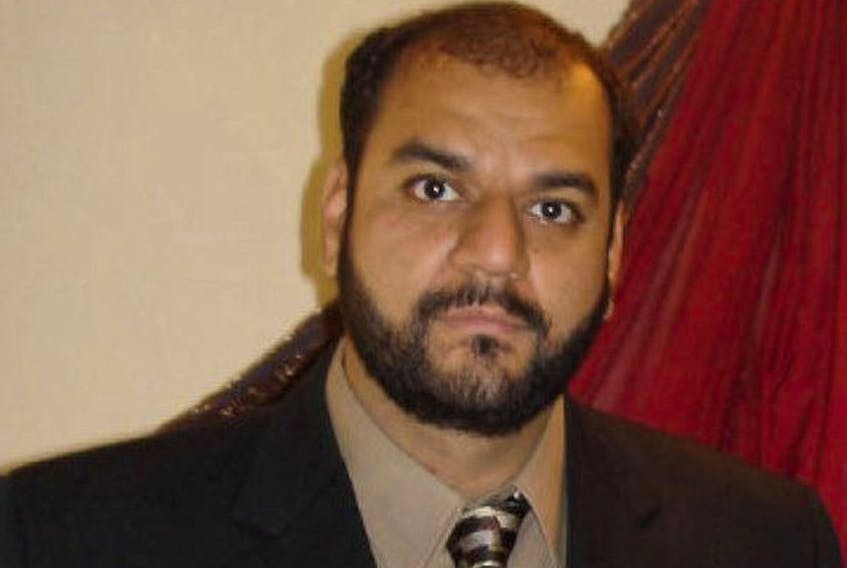Exquisite Concerns of Canadian Justice Over the Rights of Convicted Terrorists
"The Board has considered the technology available at the time of your offences and the one in place today that could be used by terrorist groups. As such the Board is of the opinion that your internet usage and communication must be monitored.""Everyone has a reasonable expectation of privacy in the contents of their devices, and as a parolee, you have a reduced expectation of privacy.""A broad search of your devices as described above may reveal more information than is reasonably necessary for the monitoring purposes of the special condition.""In the case the Board did not explain how the broad search power of your devices reflected a proportionate balancing of your right to be secure against unreasonable search and the statutory mandate of the CCRA [Corrections and Conditional Release Act."Parole Board of Canada
As the proven mastermind behind a bold and far-reaching terrorist plot to attack key government institutions by a group named the Toronto-18, Shareef Abdelhaleem was imprisoned on a 'life sentence' with no chance of parole for ten years, after being found guilty as charged. He was the master architect of a plot to detonate truck bombs in 2006, to blow up the Toronto Stock Exchange, a military base, and the Canadian intelligence group CSIS. Plans to storm parliament, take hostages and behead the prime minister all fell under his leadership.
"[Continuing to allow him only one device] was more aimed at making the surveillance more convenient for Correctional Service of Canada as opposed to addressing legitimate concerns about public safety."Abdelhaleem complaint filed with Parole Board
 |
| Muhammad Shareef Abdelhaleem |
Granted day parole almost a year earlier, he was effusive in his praise over the decision reached by the Parole Board to release him from prison and allow him to be reintroduced into broader society. There were some constraints imposed upon him, primarily in communications, permitting him one computer device and allowing oversight by the Parole Board in surrendering his password. Living at a halfway house, his initial euphoria over being freed from prison has now given way to a complaint about those restrictions.
Abdelhaleem feels entitled to having those restrictions loosened to permit him more internet freedom and greater computer access; clearly unhappy he has been denied unlimited internet access and limited to either a mobile phone or a computer. The last of the 18 terrorists to be convicted in 2011, this Canadian Islamist who once led a plot to murder fellow Canadians and bomb key government institutions feels he has been hard done by in a country that equates life imprisonment with ten years' incarceration.
Before he became a jihadist he was involved in developing computer software, drove a BMW convertible and bought expensive name-brand garments for himself. Searching for a little more purpose and excitement in his life he found it in fundamentalist Islam that embraces jihad. From a life of freedom and the opportunity to do as he wished, to a decade of incarceration as a terrorist speaks of an ideological conviction born of uber-devout religious devotion.
Abdelhaleem argues that his transformation from ordinary citizen to jihadi terrorist owed nothing to internet communications. That there was no role played by computer communications in his radicalization. Instead, people he came in contact with attending mosques introduced him to the martyrdom glories of jihad and it was there, in mosques, where he was recruited to fame and glory in defending Islam against the infidels he lived amongst.
And though the Board made note of the fact that technology had undergone massive changes since the terrorist who worked as a software engineer left that occupation for the bloodier field of jihad, its use, they point out, has changed as well. The advent of mobile phones, encrypted communications, and radicalization via the internet play a vital role in the terrorist recruitment grand plans for the future.
Even while acknowledging all that and faced with the urgent request (demand) that justice prevail in his case by permitting him freer access to this problematical world of terrorist provocation, the Board concerns itself with ensuring they do not rule on the matter before them in a way that could potentially abrade his Charter Rights guarantees "to be secure against unreasonable search or seizure".
 |
| Toronto 18 terrorist plot member Shareef Abdelhaleem, who received a life sentence in 2011, denounced the “blatant injustice” done to him. Photo by Alex Tavshunsky/File |
Labels: Muhammad Shareef Abdelhaleem, Parole, Parole Board of Canada, Terrorism Sentence, Toronto 18
0 Comments:
Post a Comment
<< Home